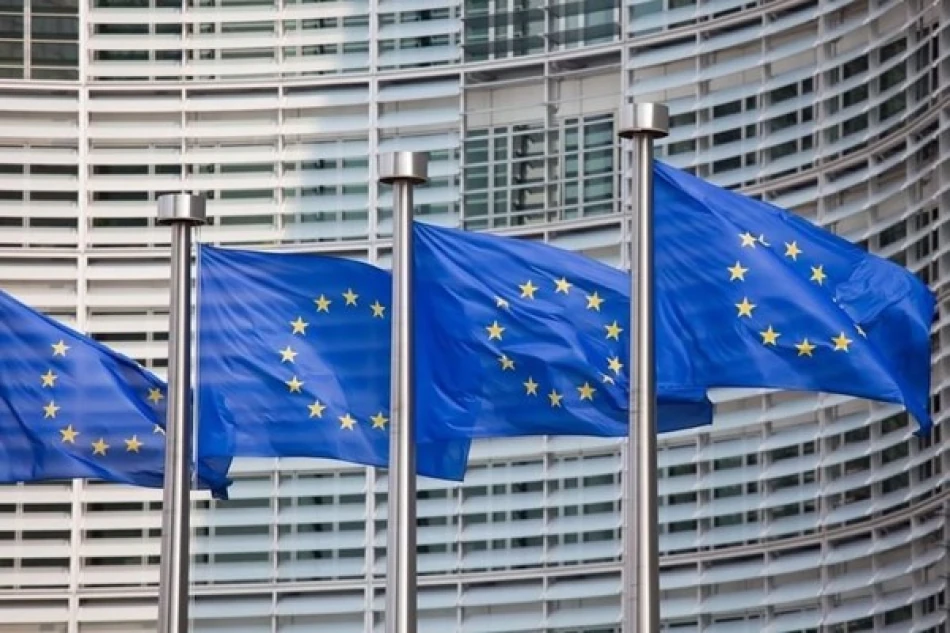
EU Launches Strategic Partnership Negotiations with Gulf Cooperation Council Countries
Europe Pivots East: EU Council Greenlights Comprehensive Partnership Negotiations with Gulf States
The European Union has authorized bilateral negotiations with Gulf Cooperation Council (GCC) states to establish comprehensive strategic partnerships, marking a decisive shift in Europe's economic and security strategy. This move reflects the EU's urgent need to diversify energy sources, strengthen supply chains, and counter geopolitical isolation while Gulf states seek advanced technology partnerships and investment diversification beyond traditional oil revenues.
A Strategic Realignment Born from Crisis
The European Council's mandate represents more than diplomatic routine—it signals Europe's recognition that its economic future increasingly lies beyond traditional Atlantic partnerships. The decision, welcomed by the European Commission and High Representative for Foreign Affairs, aims to create an "ambitious, modern, and effective" cooperation framework spanning foreign policy, security, trade, investment, energy, climate action, digital transformation, education, and culture.
Luigi Di Maio, the EU's Special Envoy to the region, described the authorization as a "historic day for moving to a higher level of ambition." This language suggests the EU views Gulf partnerships not as supplementary relationships, but as core strategic assets for the 21st century.
Economic Imperatives Drive Political Action
Energy Security Beyond Russian Dependencies
Europe's energy crisis following the Ukraine conflict exposed dangerous over-reliance on single suppliers. Gulf states, controlling roughly 30% of global oil reserves and significant natural gas resources, offer the diversification Europe desperately needs. Unlike the volatile Russian relationship, Gulf partnerships promise stability backed by mutual economic interests rather than geopolitical leverage.
Investment Flows and Market Access
Maroš Šefčovič, Commissioner for Trade and Economic Security, emphasized that these partnerships will provide "significant momentum for trade and investment relations" while creating new opportunities for businesses. Gulf sovereign wealth funds, managing over $3 trillion in assets, represent massive capital pools seeking European technology, infrastructure, and expertise.
The timing is strategic: European companies need capital for green transition investments, while Gulf states require European expertise in renewable energy, digital infrastructure, and economic diversification away from hydrocarbon dependence.
Geopolitical Chess in a Multipolar World
Competing with China and the United States
This initiative directly responds to China's Belt and Road influence in the Gulf and America's increasingly transactional approach to Middle Eastern partnerships. European High Representative Kaja Kallas noted "enormous untapped potential" in EU-Gulf relations, suggesting previous neglect has created opportunities for competitors.
Unlike Chinese infrastructure lending or American security guarantees, Europe offers regulatory frameworks, technological standards, and institutional governance that Gulf states need for their Vision 2030 diversification programs.
Regional Stability Through Economic Integration
Mediterranean Commissioner Dubravka Šuica framed the partnerships as tools for "building peace and promoting stability and prosperity in the Middle East." This reflects Europe's belief that economic interdependence creates conflict-prevention mechanisms—a lesson learned from post-war European integration.
Market Implications and Investment Outlook
These negotiations will likely accelerate several investment trends. European renewable energy companies should benefit from Gulf capital seeking clean technology partnerships. Financial services firms may gain access to Gulf markets through regulatory harmonization. Defense and cybersecurity cooperation could create new procurement opportunities.
For Gulf markets, European partnerships offer credibility and technical expertise essential for economic transformation. The agreements could facilitate Gulf sovereign fund investments in European infrastructure, technology, and green transition projects.
Timeline and Implementation Challenges
The European Commission indicated negotiations will begin "as soon as possible," building on the 2022 "Strategic Partnership with the Gulf" announcement and outcomes from the October 2024 EU-GCC summit. This timeline suggests political momentum exists on both sides.
However, success depends on reconciling different regulatory approaches, human rights considerations, and competing economic models. European standards on governance, labor rights, and environmental protection will likely feature prominently in negotiations, potentially creating friction with Gulf development priorities.
The partnerships represent Europe's pragmatic recognition that global influence requires diverse alliances beyond traditional Western frameworks. For Gulf states, they offer validation as strategic partners rather than merely energy suppliers in an increasingly multipolar world.
Most Viewed News

 Layla Al Mansoori
Layla Al Mansoori






